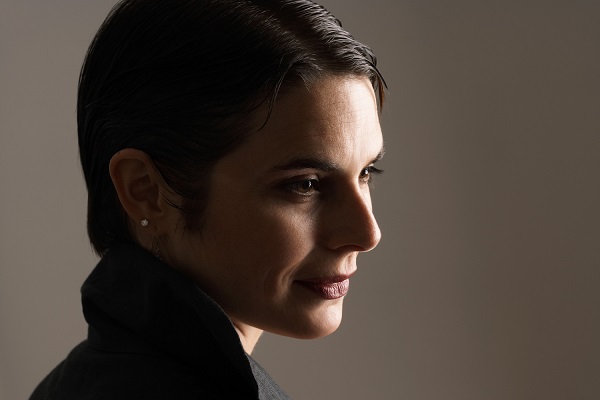Archive
Burmese Lessons explores politics, love, and the “artist as a young woman”
May 27, 2015 · 0 Comments

By Brock Weir
One Book One Aurora Living in Vancouver, Karen Connelly could hear the drumming of indigenous women in the distance as police and investigators began excavating the farm of serial killer Robert Pickton, looking for bodies of scores of women missing from the city’s Downtown Eastside.
Ms. Connelly was, at the time, working on her novel, “The Lizard Cage”, a book she describes as “looking at man’s inhumanity to man, what evil is, where evil comes from, and people who are physically cruel to one another.” Although the novel is, in part, informed by her own experiences travelling in Southeast Asia, the sounds of the drums drifting up from down the hill was a watershed moment for the author.
“I thought what I was writing about was far away, but with the excavation, I realised I was writing about my own country as well and that affected me deeply,” she says.
Since then, Ms. Connelly has devoted a considerable amount of time to advocacy work, particularly in the realm of missing and murdered aboriginal women and, this fall, Aurorans will have the opportunity to get up close and personal with the author as her memoir, “Burmese Lessons”, forms the centrepiece of the second annual One Book One Aurora Campaign, hosted by the Aurora Public Library.
Next week, small, portable libraries will begin popping up in a number of locations around Aurora laden with copies of Ms. Connelly’s book for you to pick up, pass along, and keep the conversation going throughout the year.
The book centres around her experiences in Myanmar (Burma) at a time of social and political revolution, and her relationships with the people in general and, specifically, a very personal relationship with one of the dissident men.
“This book is very much about Burma and the dissident movement against the military dictatorship that used to rule Burma, but it is also a portrait of the artist as a young woman,” says Ms. Connelly, now 46, and married with a son. “I fall in love with one of the people who are involved in the dissident movement. I think it is great to read about the artist as a young woman. We don’t have too many narratives that take that seriously. It is an intimate [story], but it is also a political experience too, not just vis-à-vis Burma, but the politics of being female, in a way.”
Ms. Connelly says she was “enormously honoured” the Library chose her book to engage the entire community in a conversation. “It’s a writer’s dream, quite frankly.”
Very much a love story, both to a culture, and between one man and woman in particular, Ms. Connelly says giving a few years’ space between the actual events and setting pen to paper allows for a “process of maturation and an ability to understand those events we can’t have in the moment.” It deepens the writing, but it doesn’t lessen the emotional impact of reliving the experiences.
“I didn’t realise [why] I was making some of the choices I was making, but I understood that later,” she says. “I understood that being with this person would make my life much more complicated as a writer, but, again, with the passage of time, and the more you live your own life, the more you understand who you are. A book like Burmese Lessons records that learning, but it is also lessons for a life. Sometimes I regret I didn’t choose that life. At the same time, I still understand, the way things were playing out, it would have been extremely difficult for me to have the life that was being offered to me with that particular person.”
Since its publication in 2009, “Burmese Lessons” has garnered considerable national and international acclaim, and several awards, but its reception has been polarizing in the land which inspired it. Burmese women really like the book, says Ms. Connelly. Burmese men, on the other hand, are less enthusiastic. An important part of Burmese culture is to be “very private about the intimate relations between men and women,” she says, a taboo which she contravened.
Writing the book with this in mind made her “uncomfortable”, she says, but that was one of the things she wanted to explore. Some Burmese men, on the other hand, have said they enjoyed the frank candour and discussion about sexuality, “something that is missing from Burmese literature and conversation.”
“I hope readers will be more aware of a country with a complex, interesting past and an equally complex, interesting future,” she says of participating in the One Book One Aurora Campaign. “It is really an amazing, beautiful place. Learn through that young woman who is so open to the world and so willing to enter other realities. She, my former self, is an example to me. I live a very different life now. I am much more settled, have a child, I’m married, and my life is quite middle class.
“When I read that work, I am quite inspired by how open and dedicated I was to figuring something out, even though I made mistakes and mis-stepped. We’re lucky to be in a place like Canada, which welcomes other cultures as well. There is still a sense of celebration around other cultures and that is part of what this One Book Celebration is all about.”
For more information about One Book One Aurora, visit www.onebookoneaurora.ca.











